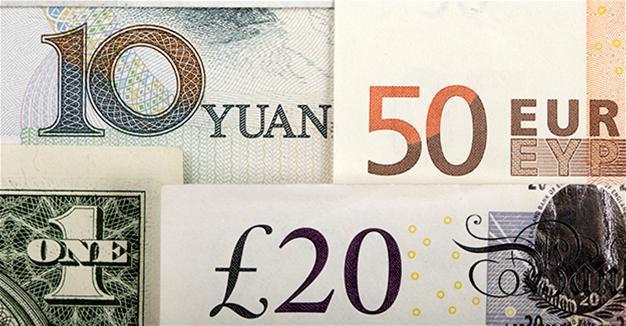Trump, trade adviser slam US’ trade partners with ‘devaluating currencies’ on purpose
WASHINGTON

REUTERS photo
U.S. President Donald Trump and trade adviser Peter Navarro strongly criticized Germany, Japan and China, saying the trading partners were “engaged in devaluing their currencies to U.S. disadvantage.”Their comments saw a harsh reaction from the country’s trade partners. The greenback also sank, before recovering due to bargain hunting.
“Every other country lives on devaluation,” Trump said on Jan. 31, as quoted by Reuters.
“You look at what China’s doing, you look at what Japan has done over the years. They – they play the money market, they play the devaluation market and we sit there like a bunch of dummies,” he added.
Japanese policymakers hit back on Feb. 1 at Trump’s accusation of currency manipulation, stressing that Japan was abiding by a Group of 20 agreement to refrain from competitive currency devaluation.
Japanese Prime Minister Shinzo Abe defended the Bank of Japan’s massive stimulus program, saying it was intended to reflate the economy and was not currency manipulation.
“Bold monetary easing is a necessary policy to accelerate economic growth and the United States is doing the same thing,” Abe told parliament on Feb. 1.
“If Japan’s economy improves, that’s not a bad thing for the United States,” he said, adding that he would explain this point when he meets Trump next week.
The euro rose on Jan. 31 after Navarro told the Financial Times that Germany was using a “grossly undervalued” euro to gain advantage over the United States and its own European Union partners.
That propelled the euro up about 0.5 percent against the U.S. dollar and drew a rebuff from German Chancellor Angela Merkel, who said the country respects the independence of the European Central Bank.
Some blame the ECB for engineering an ultra-loose monetary policy in order to keep the trading bloc’s common currency weak and stimulate economic growth in the eurozone.
“Germany is a country that has always called for the European Central Bank to pursue an independent policy, just as the Bundesbank did before the euro existed,” Merkel told a news conference in Stockholm with Swedish Prime Minister Stefan Lofven.
Despite Trump’s blunt statement, which increased the prospect of Washington reversing the “strong dollar” policy advocated by presidents dating back to the Clinton administration, the U.S. currency still attracted good demand.
“Trump is providing an opportunity for bargain hunters. The dollar ends up being sold on his statements, but ultimately it finds downside support as Treasury yields do not fall that much,” said Masashi Murata, senior currency strategist at Brown Brothers Harriman, as quoted by Reuters.
















